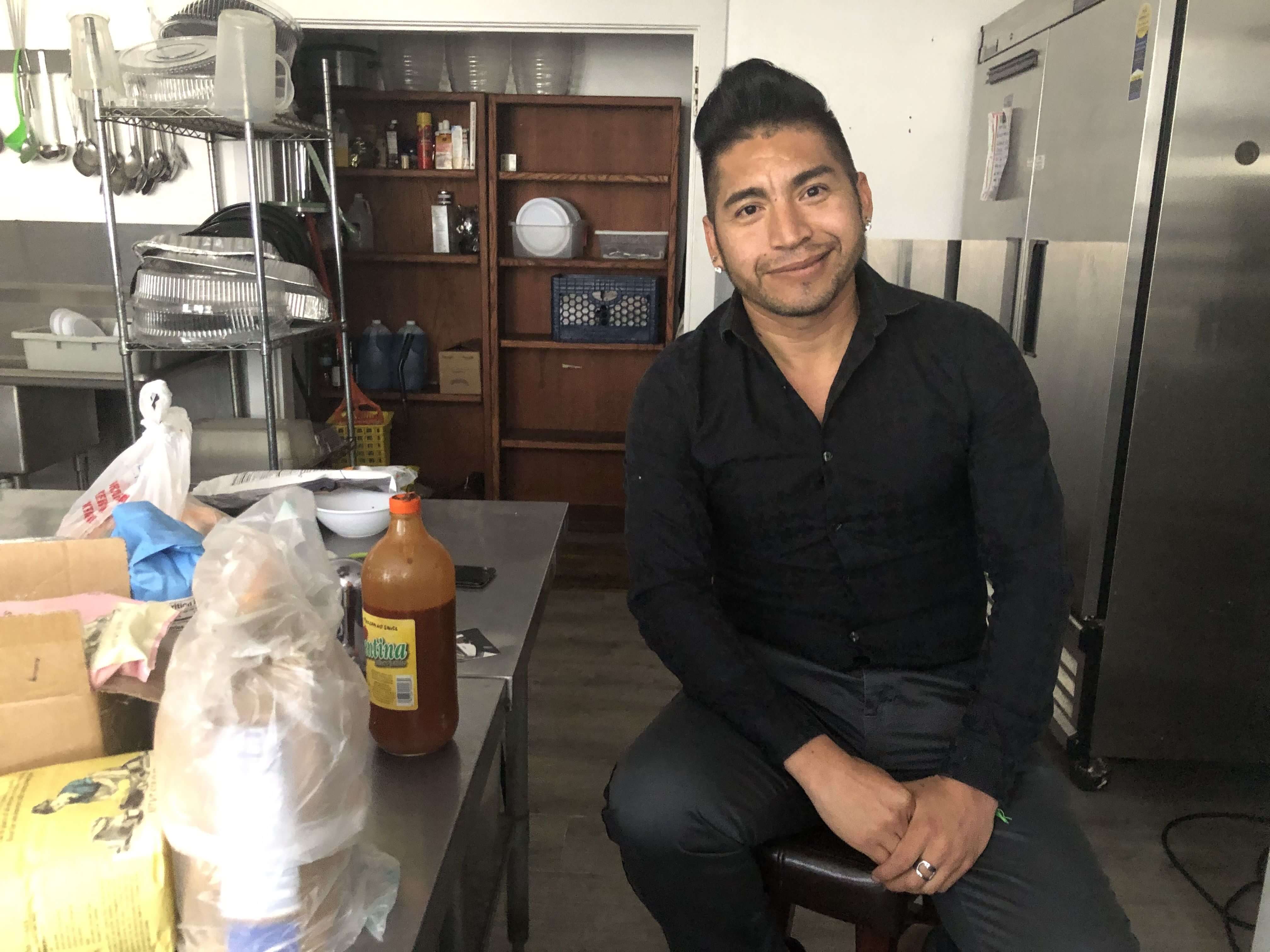Caesar Sotelo overcame his drug addiction and cooks for those who need it most.
Caesar Sotelo sits on a stool in the kitchen of a church on Fountain Avenue in Little Armenia. Smiling.
To the thousands that drive past it each week, Hope International Bible Fellowship might appear like a typical church with a typical name. But for Sotelo, it’s so much more because last September he was sleeping on its stairs at night, struggling with heroin addiction.
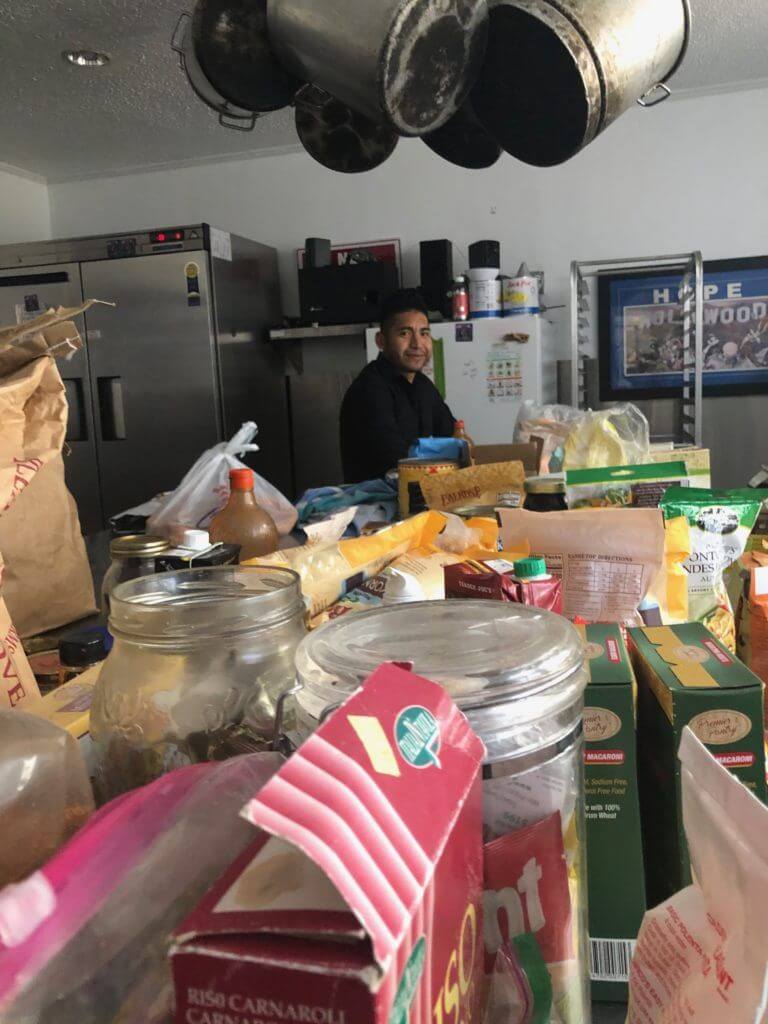
Today, he is sober, bright-eyed and optimistic. And he’s the head chef at the church kitchen, tasked with providing hundreds of meals a week for the throngs of homeless men and women who line up twice a day for a home-cooked meal.
“I had never been a cook before, but now I walk down the street and people say, ‘Hey, there’s the chef!'” Sotelo says with a laugh.
“I’ve always had a love for the kitchen because my mom was a great cook,” Sotelo says. “I would always sit with her in the kitchen and ask ‘Mom, what are you doing? What’s this?’ So I have always had it in my heart. And I have always had the gift of having my mom’s flavor, which separates me from other people. The beauty is when people eat here, sometimes it brings tears to their eyes and they will say, ‘Oh it’s like my mom or grandma cooked it.'”
During the throes of his addiction, things weren’t always so positive for Sotelo and his family. The Santa Barbara native was thrown out of the house on several occasions due to the circumstances surrounding his drug use. He made his way to L.A. where he struggled. And when he returned to the Central Coast, he made do where he could, since he was not welcome anywhere else.
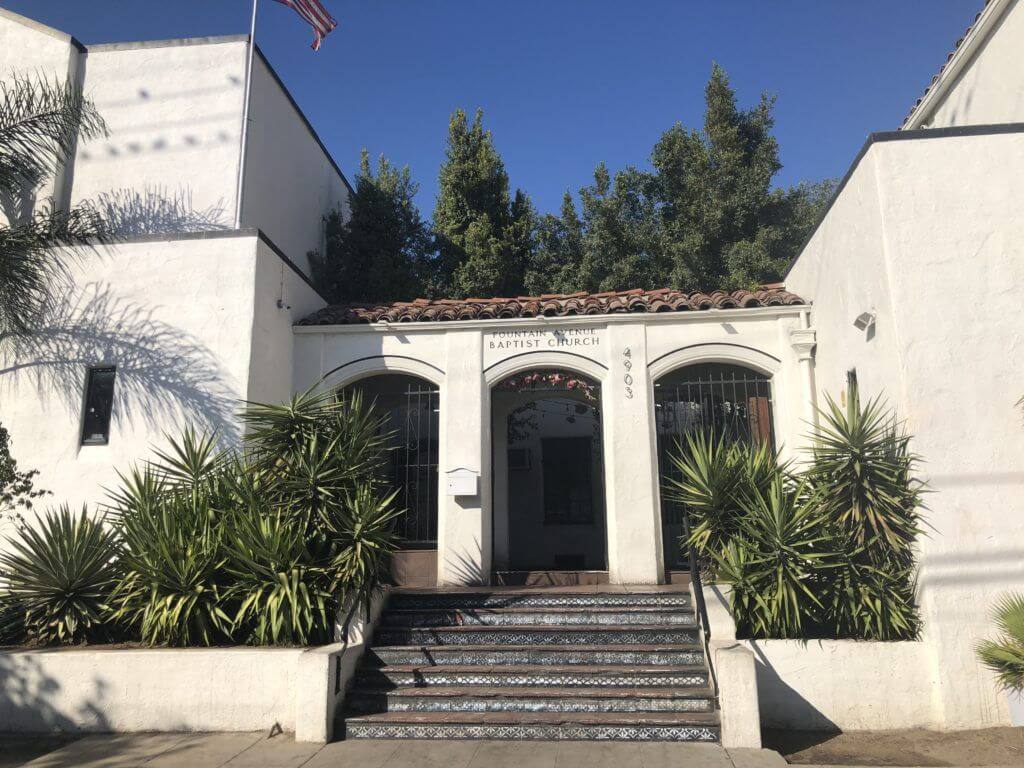
“The thing is I had no faith. I was hopeless,” he says, “I lived under a bridge in Santa Barbara for seven months. I just cried a lot. Not even my family wanted me around. They wanted nothing to do with me because of my addiction.”
His biggest challenge in Santa Barbara? Finding a wholesome meal.
“You can always find someone to give you drugs, but it can be very hard to find someone to give you a plate of food,” Sotelo says.
He decided to venture back to L.A. one more time and landed in East Hollywood, where he found the Hope church on Fountain Avenue a few blocks west of Vermont Avenue. The church hosted Alcoholics Anonymous meetings, fed the needy and seemed relatively safe.
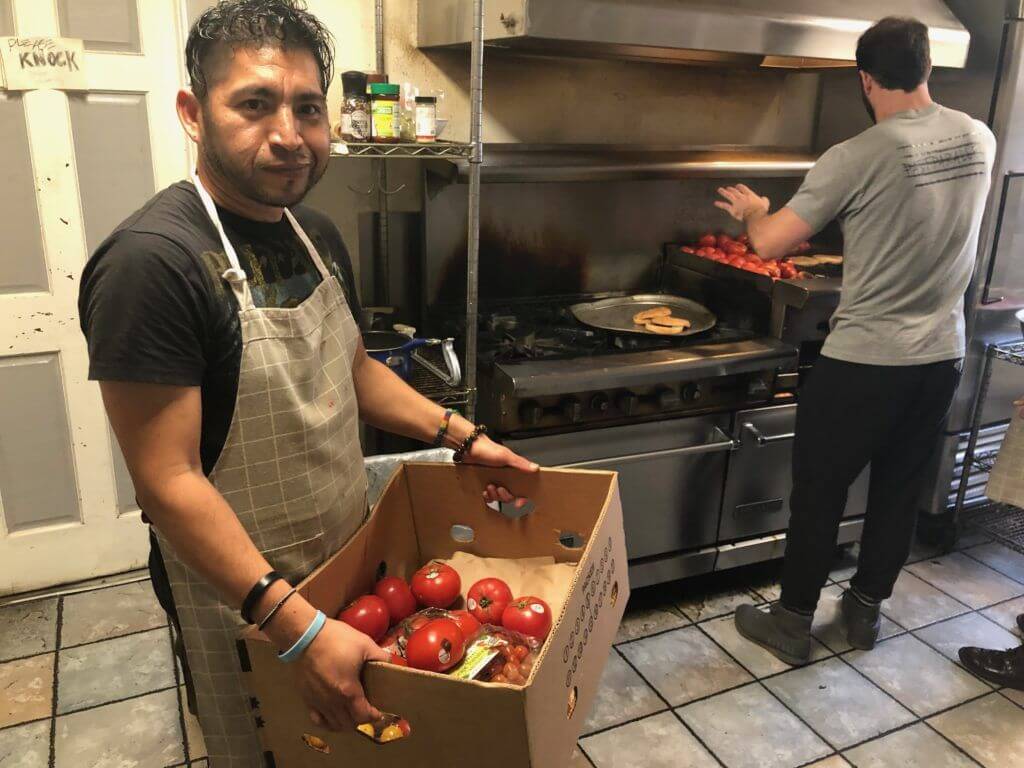
“I came here with such a defensive attitude,” Sotelo says. “There were a lot of arguments involved. It was all about having an attitude outside of these doors. Because out there you have to act that way. You have to be tough or else, you know. I got assaulted twice before I came here.”
He was turning 40 and he had nothing but the clothes on his back.
“I was scared,” he says, “I didn’t want to walk around. I would eat here.” And so, he began volunteering at the church all day.
Then, he did something unusual for him. He prayed.
“I asked God, ‘What’s my mission? You don’t want to take me with you,'” he says, adding, “I had three overdoses already. I had no direction. No meaning for my life. ‘Show me what you want.'”
“When it was about 9 p.m., I would have to leave,” he says. “So I would just prefer to stay here like in a safe — and, of course, it was a church, I felt secure.” So he slept on the steps.
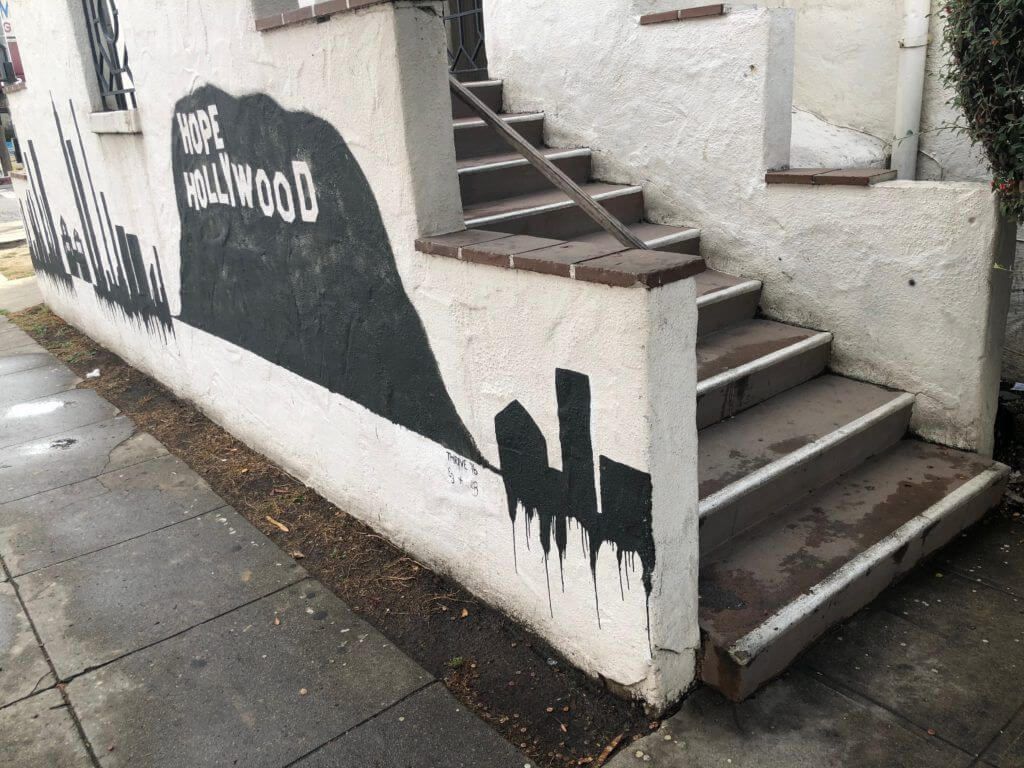
One day he was volunteering and overheard that a bed had become available. Later that day he heard of a second one. He mentioned that he was looking for housing and thanks to his work ethic and personality, he was given one of the church’s six beds. Eventually, he discovered he could cook.
“I see this is the mission he has for me … because I love helping others,” he says.
“When I cook and I am in the kitchen, I picture my mom next to me,” he says. “I could be having a bad day or a bad moment, but as soon as I come into the kitchen, it goes away. I used to go out there eating from the trash and getting sick from what I ate. But now, I get to cook from my heart and that’s the difference.”
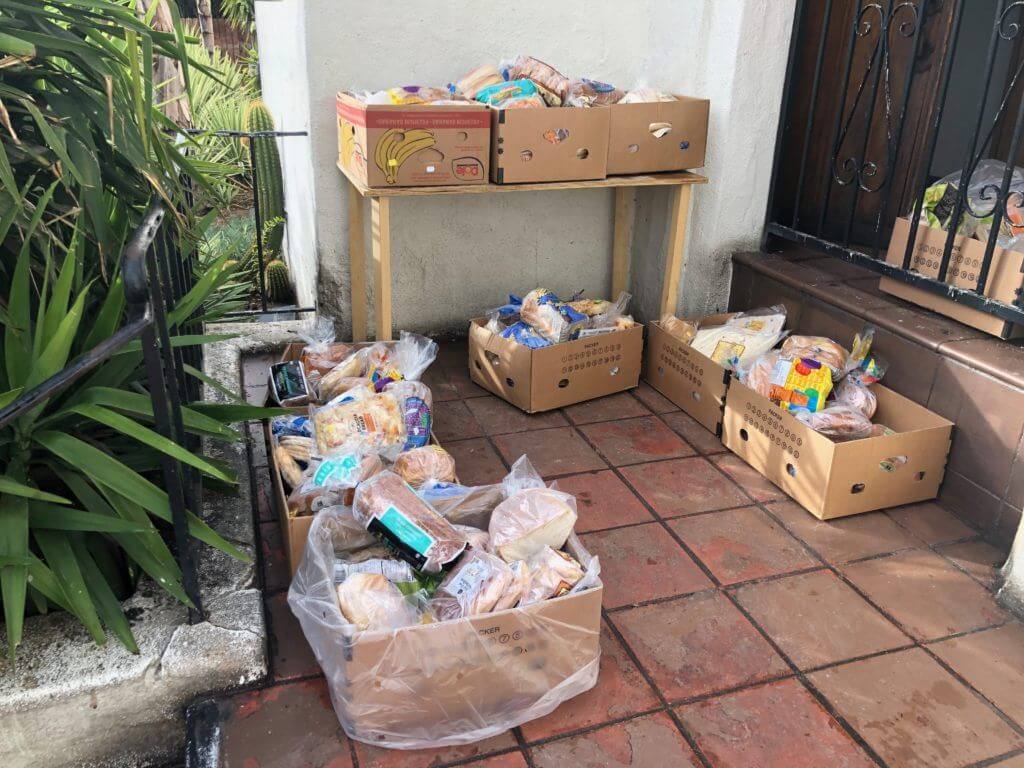
Leaning up against a wall in the back kitchen is Jason Huyck, an alumnus of the church’s Men’s Recovery Program. He was the chef right before Sotelo got the role. Huyck stepped down once he graduated from the program.
“I passed the baton to Caesar, but I couldn’t be more different,” Huyck says. “I was mashed potatoes and meatloaf and homestyle White Boy food. But Caesar arrived and added some flavor to it and I love it.”
Huyck’s family are farmers from Upstate New York. “So we are all about casseroles. My specialty was Everything But The Kitchen Sink Casserole,” he says.
Now that he has graduated from the program, he continues to volunteer at the church and also works at the San Fernando Valley Rescue Mission.
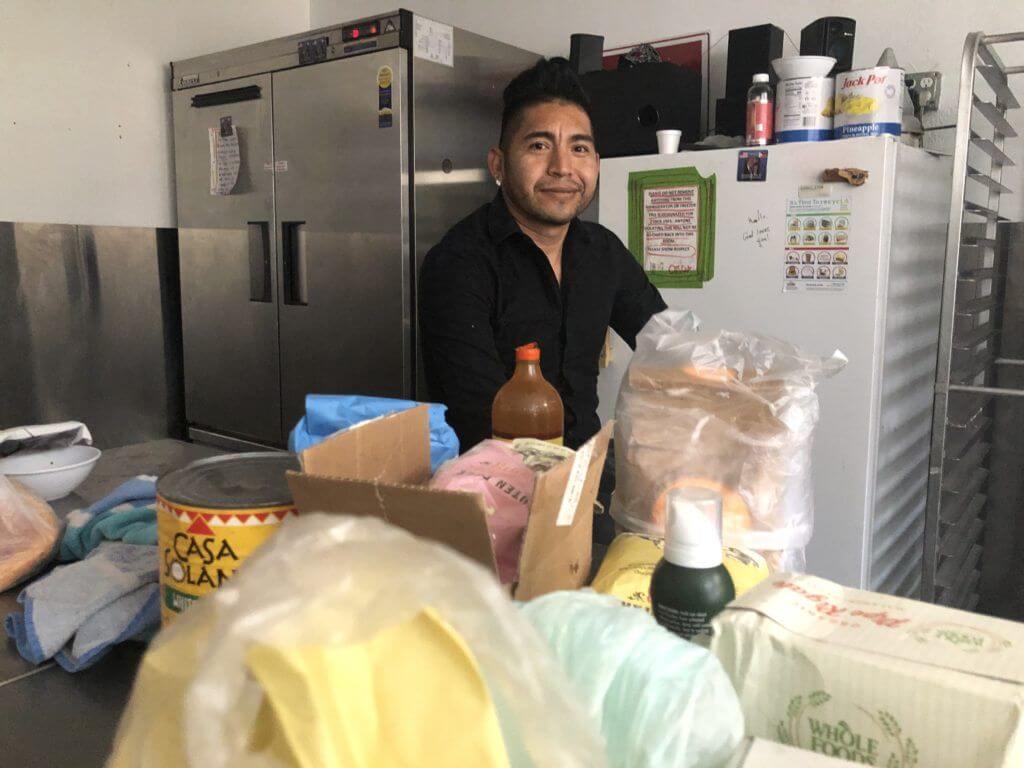
Huyck says Sotelo was a good cook immediately but there was one issue when he began — his portions were too small. “Everybody has this problem when they start here,” Huyck says. “We’re used to cooking for a family of four — or less — and then to cook for 100-plus takes a little getting used to.”
Sotelo seems to have gotten used to it. “I like to make enough for seconds now,” he says. “People are hungry. This could be their first meal in a long time. It could be their last.”
“When I cook Mexican food for them, they enjoy it,” Sotelo says. “They love spiciness. We have a mix in our homeless community. There are lots of races and colors, but they love spicy.”
He says they love his mole, his green chile adobo and, recently, his brisket. Trader Joe’s and Whole Foods regularly donate produce to the church; which for Sotelo illustrates the 180-degree change in his life as those were the dumpsters that he used to dive to feed himself. Now, they deliver that food to him. Gratis.

Image: NextDoor
Ben Falcioni, who grew up outside of Pasadena, is the director of the church’s Men’s Recovery Program. “Caesar is a joy to be around,” he says, “He wasn’t always, but that’s a testament to his commitment, and his striving to be better and to learn and grow.”
Falcioni, who was also once homeless and addicted to heroin, has been working at the church for the last eight years. He’s watched the neighborhood slowly gentrify and tolerance wane for the charitable work the church does.
In a heated thread on the NextDoor app last month, a neighbor of the church complained about the fact that they feed the homeless. She suggested that the church move. Her neighbors on the app overwhelmingly disagreed.
“She’s not alone though,” Falcioni says. “We’ve been here a long time feeding the homeless and it’s not without complaint from the neighbors. The neighborhood is gentrifying. There are people moving here who don’t want ‘those’ people in their neighborhood.”
Falcioni says the church works with the neighborhood council, the city councilman, local police and the city attorney — who has a prosecutor that specializes in homelessness — to make sure their good deeds remain safe and lawful.
“We don’t just love the homeless, we love our neighbors,” Falcioni says. “It’s foolish to think everyone is going to love this. They love it in theory, but maybe not in their backyard.”
It’s no secret that homelessness in Los Angeles has soared in the last five years, deeply impacting our city and daily lives. While solutions for the homeless epidemic are still up in the air, one thing is certain: we won’t solve the problem without working together. This is why L.A. Taco and Los Angeleno have partnered to share untold stories behind these issues in a month-long series that both shines a light on covert ugly actions from our fellow Angelenos and gives a voice to the voiceless.
Surviving for Two: Pregnant and Homeless in L.A. – Los Angeleno
Are Vigilante Groups on Facebook to Blame for the Spike in Violence Against the Homeless? – L.A. Taco
From Haircuts to Skill-Building Workshops, ProjectQ Fills in the Gaps for Homeless LGBTQ Teens – Los Angeleno

